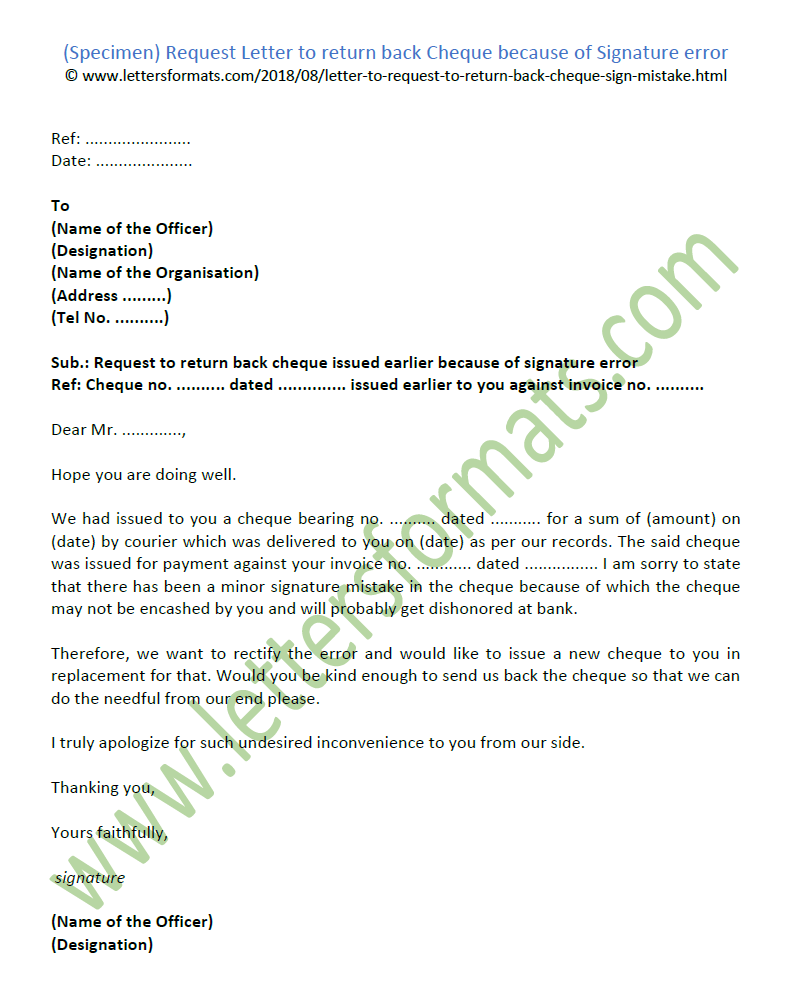Navigating Cheque Clearance: A Guide to Bank Letters
Ever found yourself staring at a pending transaction, wondering when your cheque will finally clear? It's a common experience, and one that can be easily addressed with a well-crafted letter to your bank. This comprehensive guide dives into the nuances of writing effective cheque clearance request letters, offering you the tools and knowledge to navigate this process with confidence.
Requesting cheque clearance confirmation from your bank isn't just about getting updates; it's about maintaining control over your finances. Whether it's a personal cheque or a business transaction, understanding the clearance process empowers you to manage your funds effectively and avoid potential issues like overdrafts or returned payments.
A formal request for cheque clearance details provides a clear record of your inquiry and allows the bank to address your specific concerns efficiently. While digital banking platforms often provide real-time transaction updates, a written request can be particularly helpful for complex situations, large sums, or when you need official documentation.
Historically, confirming cheque clearance involved physically visiting the bank or calling customer service. Today, while these options still exist, many banks encourage communication through secure online portals or email. Writing a clear and concise letter remains a valuable skill, providing a formal and documented approach to your request. This guide aims to equip you with the knowledge and practical examples to navigate this process smoothly.
The importance of a well-written cheque clearance request letter lies in its ability to facilitate clear communication with your bank. A detailed letter, containing all necessary information such as cheque number, date, amount, and account details, ensures your request is processed swiftly and accurately. This reduces the chance of misunderstandings and delays, providing peace of mind and ensuring smooth financial management.
A cheque clearance request letter is simply a formal communication to your bank requesting confirmation that a specific cheque has been cleared and the funds have been credited to your account. For instance, if you've deposited a large cheque and need to make a significant purchase, you might send a letter to your bank verifying that the funds are available.
One key benefit of sending a cheque clearance request letter is the creation of a documented record of your inquiry. This record can be helpful if any discrepancies or disputes arise later. Another advantage is the clarity it provides. By explicitly stating your request in writing, you reduce the risk of miscommunication or delays.
A clear and effective cheque clearance request letter should include your account details, the cheque number, the date the cheque was deposited, the amount of the cheque, and the date you expect the cheque to clear. You can also request specific information, such as the current status of the cheque and the expected clearance date.
Before sending a cheque clearance request letter, gather all relevant information, including your account number, the cheque number, and the deposit date. Draft a clear and concise letter stating your request, ensuring all information is accurate. Finally, send the letter through your preferred channel, whether by mail, email, or through your bank's online portal.
Advantages and Disadvantages of Formal Cheque Clearance Requests
| Advantages | Disadvantages |
|---|---|
| Creates a documented record | Can be slower than online checks |
| Provides clarity and reduces miscommunication | Requires more effort than a quick phone call or online inquiry |
| Helpful for complex situations or large sums | May not be necessary for routine cheque deposits |
Frequently Asked Questions:
Q: How long does it typically take for a cheque to clear? A: Cheque clearing times vary depending on the bank and the amount of the cheque.
Q: Can I request cheque clearance information online? A: Many banks offer online banking platforms where you can check the status of your transactions.
Q: What should I do if my cheque hasn't cleared within the expected timeframe? A: Contact your bank to inquire about the status of the cheque.
Q: Is a written letter necessary for cheque clearance requests? A: While not always mandatory, a written letter provides a clear record of your request.
Q: What information should I include in my cheque clearance request letter? A: Include your account details, the cheque number, deposit date, and the cheque amount.
Q: Can I request a specific clearance date from my bank? A: While you can inquire about the expected clearance date, banks typically have their own processing timelines.
Q: What should I do if there's a problem with my cheque clearing? A: Contact your bank immediately to resolve the issue.
Q: Are there fees associated with requesting cheque clearance information? A: Typically, there are no fees for requesting cheque clearance information.
One helpful tip is to keep a copy of your cheque clearance request letter for your records. This can be useful if any questions or issues arise later. Another trick is to follow up with your bank if you haven't received a response within a reasonable timeframe.
In conclusion, requesting cheque clearance from your bank is a crucial aspect of managing your finances responsibly. While digital banking provides convenient access to transaction details, crafting a well-written request letter offers a formal and documented approach, particularly beneficial for complex situations or large sums. Understanding the process, following the outlined best practices, and utilizing sample letters can empower you to navigate cheque clearances with confidence. By taking proactive steps to confirm the status of your cheques, you can maintain control over your funds and avoid potential financial hiccups. This meticulous approach to financial management ensures smooth transactions and provides peace of mind in knowing your financial matters are handled efficiently and accurately. Remember to keep records of your communications and don't hesitate to contact your bank if you have any questions or concerns about the cheque clearing process. Taking these steps contributes to a more organized and stress-free financial life.
Unraveling the enigma raised by villains manga chapter 26
Mastering ppe donning locations
Unwind at lakepoint happy hour this evening














